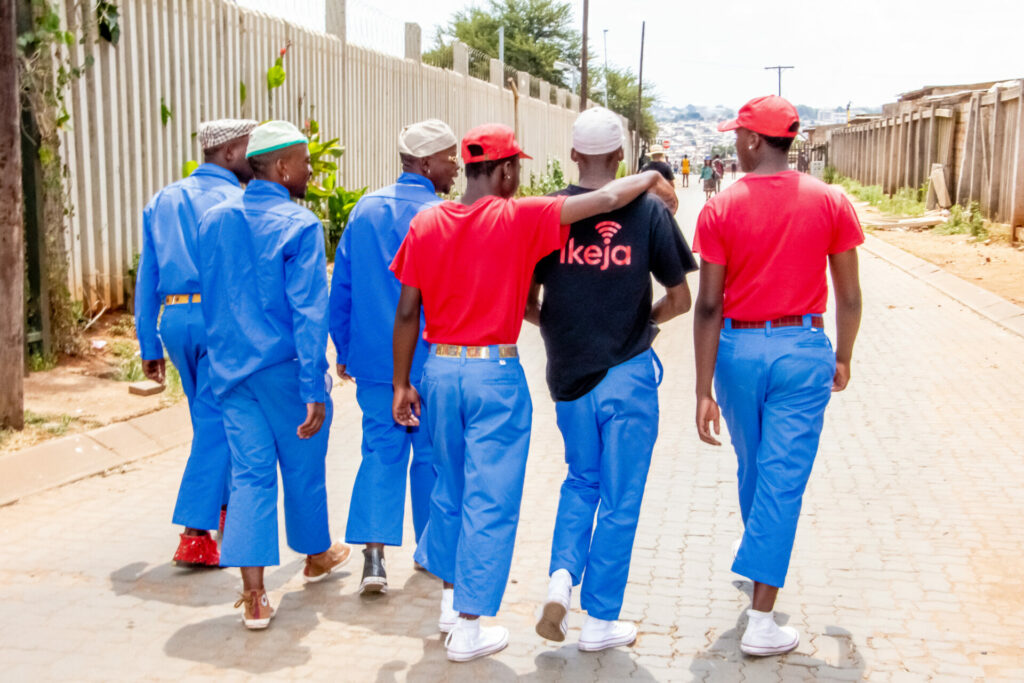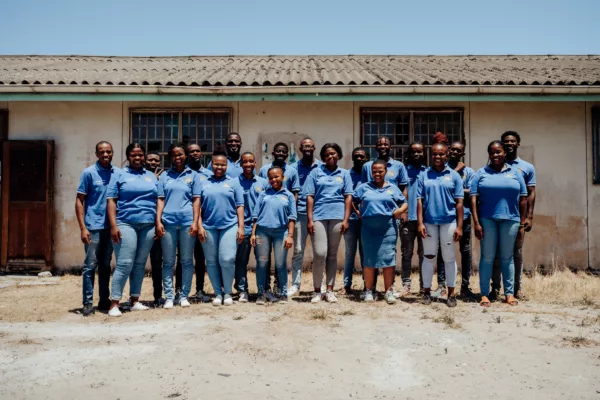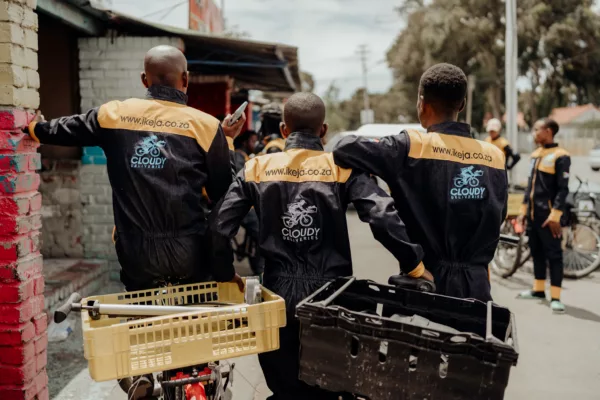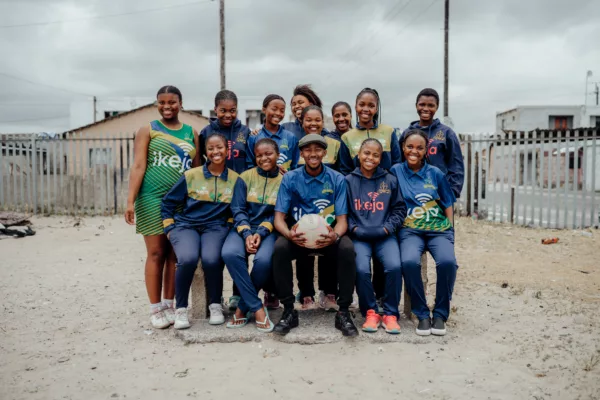It’s Saturday morning, and the Gauteng summer heat is unrelenting. I wait with a friend under a tree as we keep making turns to the nearby shop that, strangely, doesn’t sell much. I settled for chocolate Topper biscuits and an energy drink for my friend. Soon enough, two Tembisa Red Devils Pantsula dance group members pull up to take us three streets away from the “main” road to the hall they practise in. They’re who we’ve been waiting for.
I gather from the chatter that these guys were out dancing the previous night. “One of our oldest clients called us for a gig last night. We’re tired and, as you can tell, hungry too,” says Solly Phahlamohlaka, one of the oldest in the group and superintends it. There’s familiar banter between the group, which now is about eight guys huddled up to eat. As you can imagine, they eat like a family. There is no cutlery, you dig into the chips with your hands, break a piece of bread and throw it into the mouth. It would be fascinating if I didn’t know much about the township, or rather, hadn’t grown up in one. The camaraderie, this brotherhood, reminds me of a culture I know too well. Their “uniform” reminds me of some school pride and community spirit. It’s a statement. Pantsula fashion has always been an important marker of identity and resistance. It has particular elements like the Dickies trousers, Converse All-Star sneakers and a cap with a small brim hat. You can recognise it anywhere.
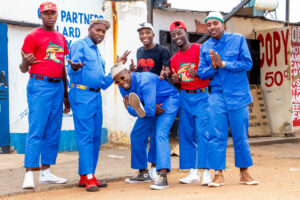
The inception of the crew is a classic township boys’ story. Trying to make sure you make something out of your life? Occupy your time. Find something to do. And that was the of the nine young high school boys who, fast forward more than ten years later, have gained both national and international acclaim. As we get into what, why, when Frans Makhubela, informally known as ‘Pantsupantsu’ lets me know that their performance the night before was a great start to the year.
Competition is everywhere, and it is no stranger to the art of dance, before the white flag. Solly and Fras used to be “rivals”, and I use that word loosely, looking at the brotherhood they’ve now formed. Eventually, as all things eventually came to fall into place, the duo decided it would be viable and smarter to join forces. Nine is the magic number, and, as one realises, time is a thief. Now four from the initial group are still waving the flag. There have been many faces that have joined the dance crew and many who gave up along the way. “This art form requires passion,” says Solly. “A lot of the other guys that joined the group with us left because when we were starting, we didn’t have that many clients. Luckily, we had Johannes Happy Mkhonza, the Chairperson of Santaco Gauteng and Ivory Park Taxi Association, who developed a liking for us and has been assisting with transport whenever we have a gig nationally.” I imagine a man with that social status can pull a few strings.
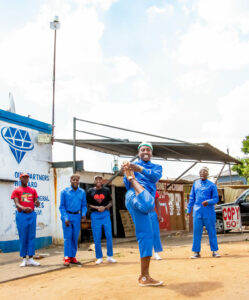
Vusumuzi Dhlamini, aka Magolide, teases competition within the group. “It was a healthy competition. We all wanted to be great dancers, so we always tried to be the best amongst ourselves.” This competition is, in other ways, made possible by the group’s faith. Most, if not all, of the crew members, believe in God. Before every show, prayer leads the way. If you factor in their background, you will understand why praying makes sense.
There’s an emphasis on how they grew. With many South African townships, poverty and single parent households are the norm. The older members of the group had to, at some point, consider other means of making money and putting food on the table. Put this into perspective and ask yourself; how does one follow their passion on the backdrop of being raised in an underprivileged township? Well, it’s the single promise of following and chasing the things that make your heart sing, right? Dancing, as Solly and Frans agree, is a clean hustle. You don’t bother anyone and you listen to your feet. There is no time to spend wallowing when you should be in practice.
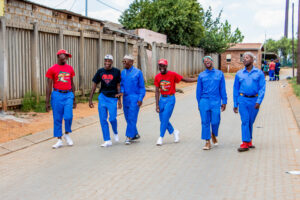
How does ikeja fit in, I ask. It was coincidental – the Tembisa Red Devils Pantsula dance group know how to leverage their talent and social media for familiar surprises. And it is a perfect relationship. Dance, talent, ikeja and coincidence are like the four-leaf clover: a symbol of faith, hope, love and luck. Isn’t that what the dance group is ignited by?
By the time we stop talking, the sun is peeking over the trees. And as someone who understands the unwritten rules of coming into someone else’s home, there’s no doubt I have to live by their rules. We go our separate ways at our last amen.
